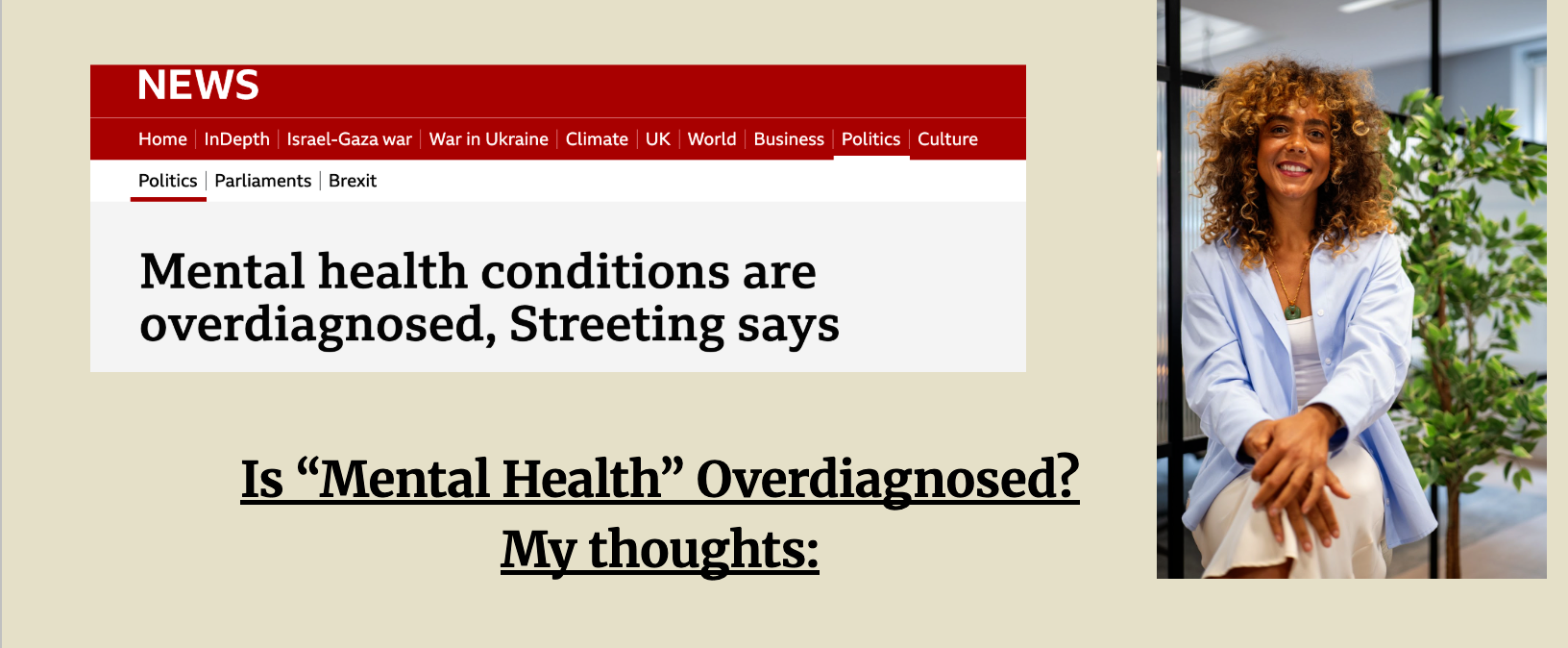Is “Mental Health” Overdiagnosed?
My thoughts:
“Mental Health is NOT over diagnosed, it is misunderstood”
The UK government’s recent announcement that mental health is misunderstood raises an important conversation about how we approach mental health as a society. One of the core issues lies in how the government used the term “mental health” as an umbrella term, often conflating it with mental illness. This leads to an oversimplified discourse, where diagnosis becomes the focal point rather than understanding, long-term solutions, prevention and building mental fitness.
While some argue that mental illnesses are overdiagnosed, there is insufficient evidence to support this claim. Instead, the issue may stem from a persistent pessimistic and negative approach to mental well-being. Society tends to prioritise labels and medication as primary solutions, often neglecting the deeper, more complex causes of mental distress. A diagnosis alone does not resolve the root of the issue, nor does it provide individuals with the tools they need to truly heal and thrive.
What people genuinely need is access to systems that foster an empathetic approach to real mindset and behavior change, along with community and accountability. True healing comes from empowering individuals with knowledge, resources, and strategies to cultivate resilience and self-awareness. Mental well-being should be approached in the same way as physical health, through consistent effort, training, and self-care. Just as we invest time and energy in strengthening our bodies, we must do the same for our minds.
Understanding mental health requires a shift in perspective. It is not a linear journey with a definitive endpoint but a lifelong process of self-discovery and growth. To move forward, we must embrace an optimistic and hopeful outlook, equipping people with practical tools to support themselves. A growth mindset, one that acknowledges that an alternative reality is possible, is essential to creating a culture where mental well-being is nurtured rather than merely diagnosed.
Rather than debating overdiagnosis, the conversation should focus on how we can build a society that fosters proactive mental health care, encourages personal agency, and prioritises holistic well-being over simply assigning labels.
